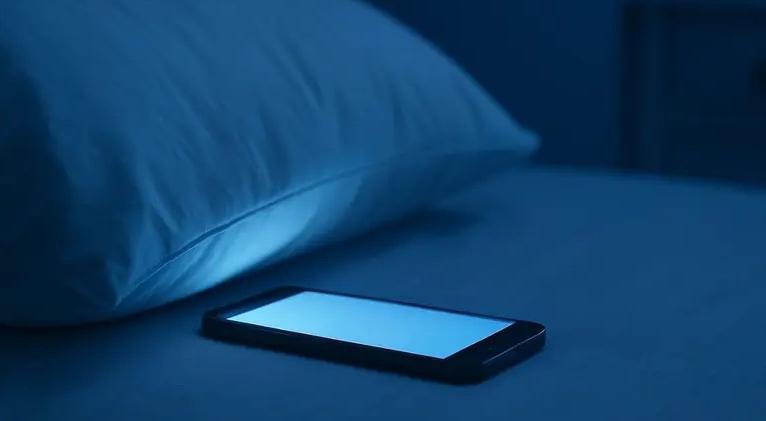Sleeping With Your Cell Phone Under Your Pillow: A Dangerous Habit?
especiales

Raise your hands, those of us who are head, torso, limbs, and cell phone! Well, I have good news and bad news about the risks of having our inseparable companion close at hand, even while sleeping. Many people, especially young people, have the habit of leaving their smartphones under their pillow or a few inches from their head. This seemingly harmless habit poses significant risks to health, safety, and overall well-being.
One of the biggest fears associated with sleeping with a cell phone nearby is exposure to radiofrequency (RF) electromagnetic radiation. Phones emit low-frequency waves. while they are on, especially if connected to mobile data or Wi-Fi. Although the World Health Organization (WHO) classifies these emissions as "possibly carcinogenic" (category 2B), current studies have not established a conclusive link between cell phone radiation and serious diseases such as cancer. However, the International Agency for Research on Cancer (IARC) recommends caution, suggesting keeping devices away from the body at night to minimize any potential risk, especially in children, whose developing tissues may be more vulnerable.
Some sources suggest that this practice poses an immediate physical danger: overheating. Cell phones, especially when charging, can generate excessive heat if not properly ventilated. Pillows often retain heat, increasing the risk of device damage or, in extreme cases, causing a fire. In 2023, isolated incidents were reported in which overheated phones caused minor burns or property damage, according to the U.S. Consumer Product Safety Commission (CPSC).
The good news is that these risks, so-called physical ones, don't often materialize, and in the case of radiation, their effect is minimal; some scientists don't even consider it as a possibility.
However, other invisible threats warrant warning: sleeping with your phone under your pillow affects sleep quality and mental health. The blue light emitted by screens inhibits the production of melatonin, the hormone that regulates sleep, according to a Harvard University study. Even if the phone is on silent mode, notifications, vibrations, or the temptation to check messages can disrupt your rest.
This habit is linked to insomnia, chronic fatigue, and increased anxiety, especially among teenagers who use their phones as an extension of their social lives. Clinical psychologist Dr. Ana Torres, with extensive research on sleep disorders, explains: "The proximity of a cell phone creates an emotional dependency that makes it difficult to disconnect, affecting not only sleep but also long-term psychological well-being."
Experts agree that small changes in habits can make a big difference: keep your phone away from the bed, on a nightstand, or in another room. If you use it as an alarm clock, consider a traditional clock. Disable Wi-Fi and mobile data; in fact, it's best to put it in airplane mode and dedicate the last 30 minutes before bed to relaxing activities, such as reading a book or meditating.
No matter how difficult it may be, it's undeniable that learning to disconnect, literally and metaphorically, is a challenge and a need in these times. Tonight, let's put our phones aside and give our bodies and minds the rest they deserve.
Translated by Amilkal Labañino / CubaSi Translation Staff














Add new comment